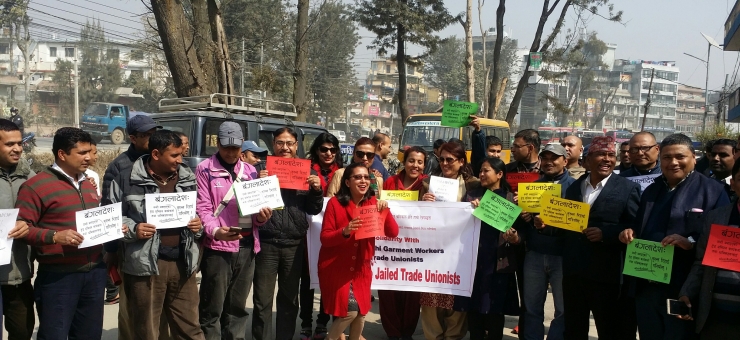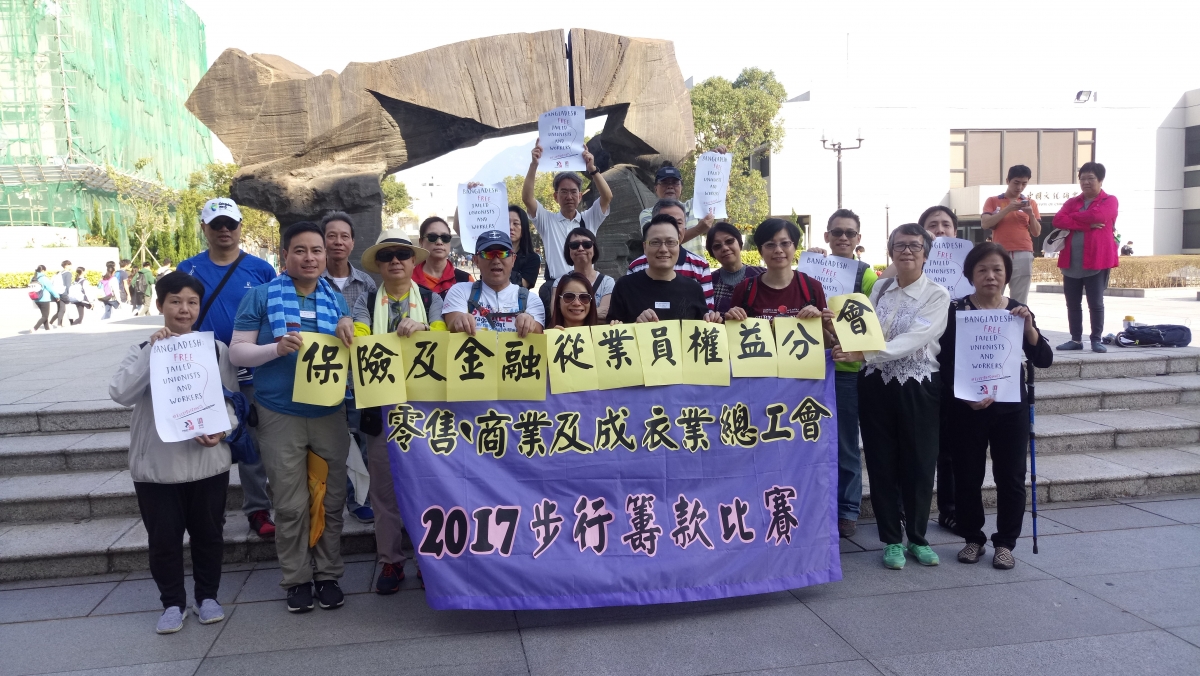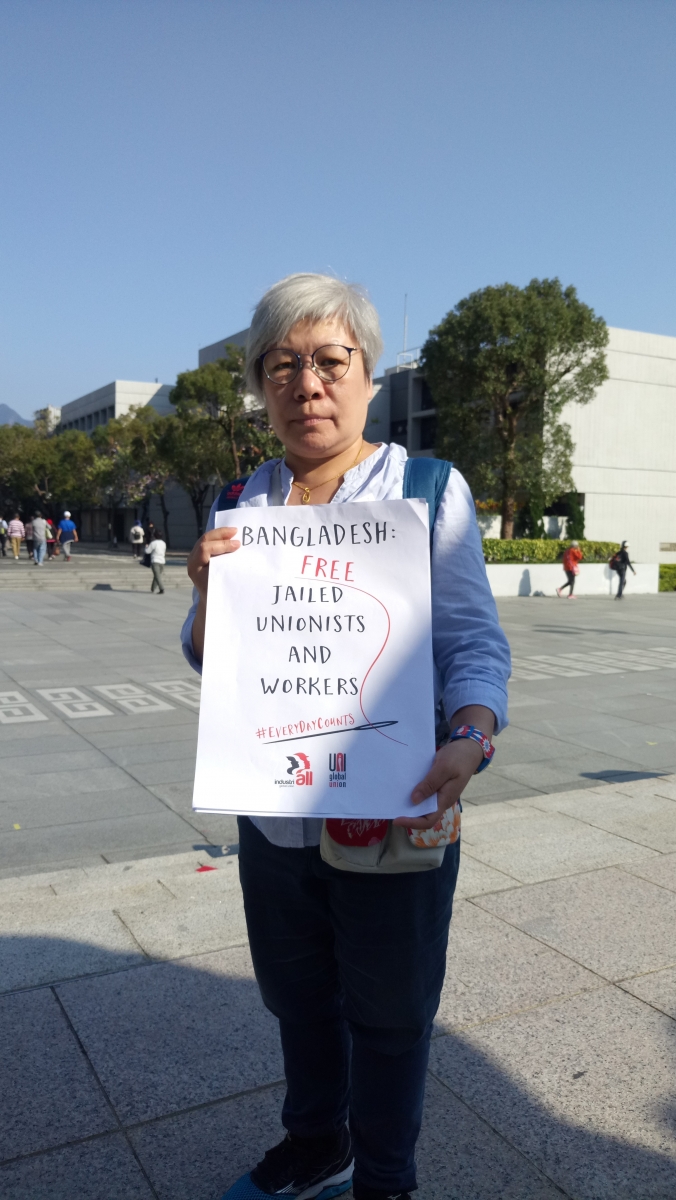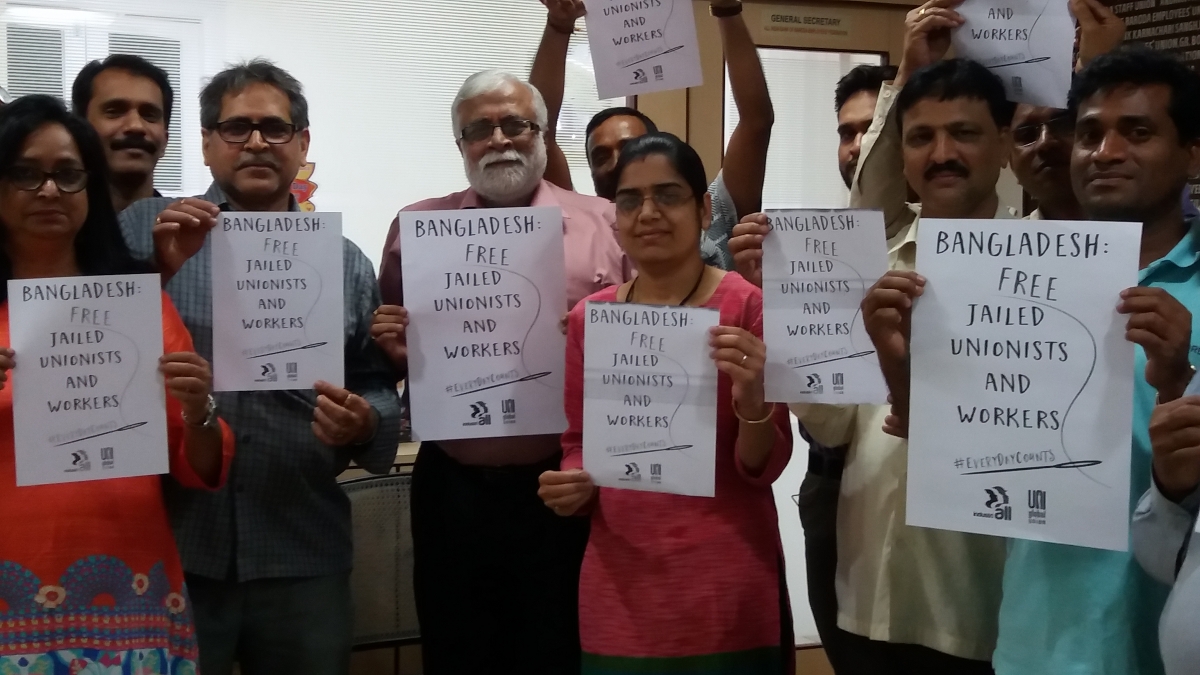Global protests grow over Bangladesh crackdown against trade unions

Trade unionists, workers and NGOs have gathered together to stage actions outside Bangladesh embassies and consulates around the world. They are calling for wrongly jailed union leaders and workers to be freed immediately and the crackdown against unions to stop.




In last few weeks at least 34 union leaders and garment workers have been arrested and detained over false allegations connected to demonstrations over low wages. As recently as February 10 a group of nine union leaders were arrested in Chittagong. As of today many remain imprisoned and none of the charges have been dropped.
UNI Global Union Deputy General Secretary, Christy Hoffman said, “This crackdown is about denying workers in the Bangladeshi garment industry the right to organise unions and collectively bargain for decent wages. We call on the Bangladesh government and the BGMEA to put a halt to this harassment and respect the workers who create wealth for their country while receiving a pittance.”
IndustriALL Global Union Assistant General Secretary, Jenny Holdcroft, who delivered a letter of protest to the Bangladesh Consulate in Geneva said, “The Bangladesh government must understand the implications of the widespread protests this week in Europe, the United States and Asia. There’s no sustainable future for the industry without respect for labour rights."
Pressure on the Bangladesh government and industry is continuing to mount. Leading garment brands, including H&M, Inditex, C&A and Tchibo, have said that they will not be attending the industry’s Apparel Summit in the Bangladeshi capital Dhaka on February 25, citing the current climate of repression against unions as incompatible with activities to promote the industry.
The absence of global brands at the Apparel Summit, an international event which will be inaugurated by Bangladesh Prime Minister Sheikh Hasina, sends a clear message to the Bangladesh garment industry that so long as workers and trade unionists are being arrested and intimidated for speaking up for the rights of garment workers, there will be no ‘business as usual’.
Background
The situation in Bangladesh has continued to deteriorate with the government cracking down hard on organised labour. Trade union offices have been ransacked and vandalised, leaders arrested and imprisoned and organisers have gone in to hiding for fear of retribution.
UNI Global Union and IndustriALL Global Union have been at the forefront of improving worker rights and safety in the garment industry in Bangladesh following the 2013 Rana Plaza factory collapse, which killed more than 1,100 garment workers. They were the drivers of the Bangladesh Accord, a legally-binding agreement signed by more than 200 global brands, to inspect 1,600 garment factories for fire and safety hazards. More than 74% of identified safety issues in the 1,600 factories have been reported and verified as fixed.
Follow on twitter: #EveryDayCounts
Or Facebook: facebook.com/uniglobalunion

